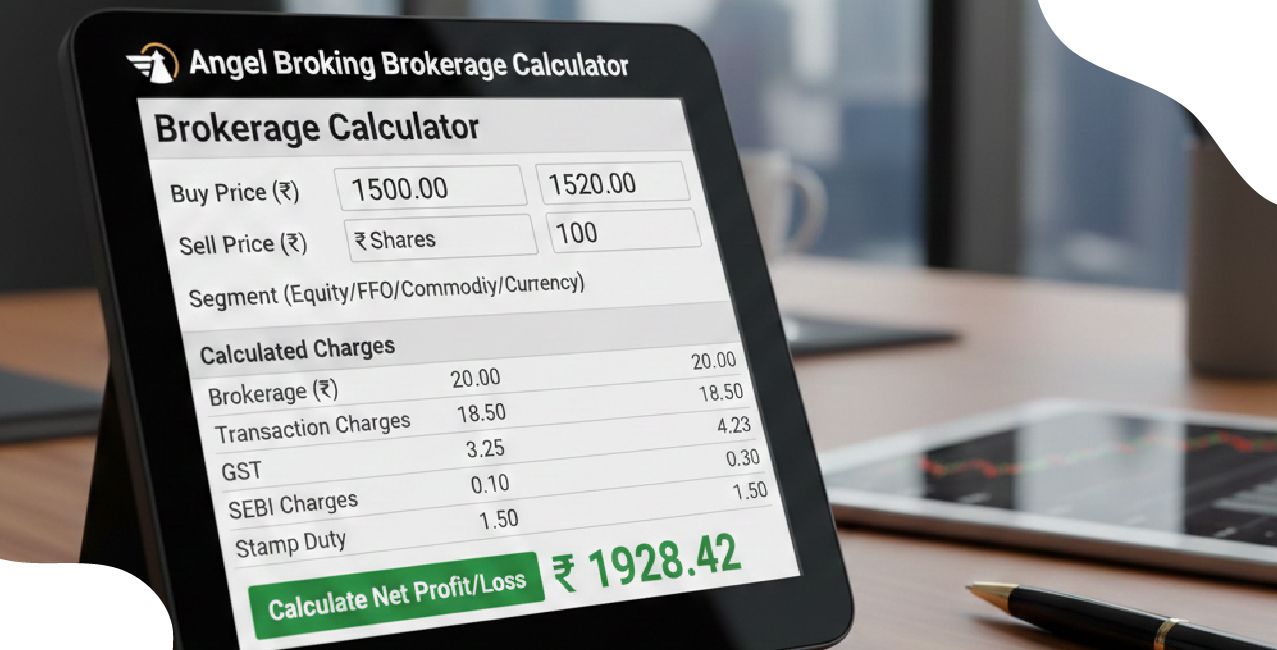Salaried vs Self-Employed: Who Gets the Best Loan Deals in 2025?

Check Your Loan Eligibility Now
By continuing, you agree to LoansJagat's Credit Report Terms of Use, Terms and Conditions, Privacy Policy, and authorize contact via Call, SMS, Email, or WhatsApp
“Bhai, mera ₹30 lakh ka home loan sirf 48 hours mein approve ho gaya!” Harsh, an IT professional, says while sipping chai and looking at his phone.
Occupied with a stable monthly salary of ₹80,000, Harsh is easily trusted by lenders, as he wants to purchase a 2BHK flat in Pune at an interest rate of 8.2%.
Rohit, a self-employed wedding photographer, shakes his head. “Main ₹1.5 lakh kamaata hoon, phir bhi ₹25 lakh ka business loan approve karana itna tough kyun?” He wants to upgrade his studio and buy new cameras.
But because of Rohit's changing income, lenders are unsure, and the banks demand 3 years of ITR, a strong CIBIL score (750+), and proof of business stability before approving his loan at 10.5% interest.
“Fixed Salary vs. Apni Dukaan”
Factor | Harsh (Fixed Salary) | Rohit (Apni Dukaan) |
Monthly Income | ₹80,000 (stable) | ₹1.5 lakh (fluctuating) |
Loan Type and Amount | ₹30 lakh home loan | ₹25 lakh business loan |
Interest Rate and Tenure | 8.2% for 20 years | 10.5% for 5 years |
EMI | ₹25,500 per month | ₹53,500 per month |
CIBIL Score | 780 (easier approval) | 750+ (strict scrutiny) |
Approval Time | 48 hours | Longer, requires |
Purpose | Buying a 2BHK in Pune | Studio upgrade and new cameras |
Salaried individuals will face less loan processing time in 2025, as self-employed business owners can lock in the best deals by making smart financial moves. Toh aap kaun hain—Harsh ya Rohit? Learn your loan eligibility to earn the best rate with ease.
The Power Of Income Stability In Loan Approvals Of Employees: “Pakka Paisa!”
Why Do Lenders Prefer Salaried Employees Like Harsh?
Read More – Why Do Banks Prefer Salaried Employees for Personal Loans Over Self-Employed?
Predictable Income Stream
Fixed monthly salaries make salaried individuals reliable to lenders because they have stable income sources.
- Since Harsh always gets his ₹80,000 salary on time, lenders have a better chance of getting their money back.
- They do not give loans to self-employed people since they undergo constant fluctuations in their income.
Easier Loan Approval & Faster Processing
Banks process loans quickly when you have a stable job, usually within 48 hours, if all the proper documents are provided.
- Harsh obtained his loan approval in 48 hours without any delays by providing minimal documents like salary slips, Form 16, and bank statements. Self-employed borrowers need special evaluations.
Lower Interest Rates
Companies provide lower interest rates to people with fixed salaries because these individuals carry less financial risk.
- The bank gives Harsh an advantageous 8.2% mortgage rate because employees pose less risk compared to self-employed borrowers who face higher rates at 10.5%.
Higher Loan Eligibility
Since banks evaluate loan eligibility using the Debt-to-Income ratio (DTI), they give officials who earn a set salary better chances of securing a larger loan amount.
- With his monthly earnings of ₹80,000, he can qualify to borrow between ₹40 lakh and ₹50 lakh, depending on his current spending habits.
Job Stability Adds to Creditworthiness
When you work for well-known employers or serve the government, you improve your loan application chances along with receiving pleasing repayment plans.
- Being employed in the IT industry provides Harsh with better opportunities to avail low-interest loans.
- Self-employed individuals who wish to be approved for loans are required to display three years of profitable business activities together with CIBIL ratings of 750 and above while presenting tax records.
“Loan Ki Duniya Mein Kon Aage Hai!”: Salaried vs. Self-Employed
Factor | Salaried Employee | Self-Employed Individual |
Income Stability | Having a regular pay period provides employees with financial security. | Income varies based on the performance of a business's operations. |
Loan Approval Speed | Swifter approval (usually within 48 hours). | Longer process due to additional inspection. |
Interest Rate | Lower (e.g., 8.2% for home loans). | Higher (e.g., 10.5% for business loans). |
Loan Eligibility | Higher due to predictable income | A lending institution decides on your loan application based on how steadily your business makes money. |
Required Documents | People need salary records, Form 16 bank statements and identification documents to become eligible. | 3 years of ITR, business financials, GST returns, and proof of stability. |
CIBIL Score Requirement | You usually qualify for simple approval with a CIBIL score of 700+ or higher. | Lenders want people with 750+ CIBIL scores who prove financial stability through their records. |
Loan Amount | Lenders give loans that are equal to 60 times a borrower's monthly salary. | The amount borrowed depends on the business performance metrics. |
Down Payment Requirement | Lenders approve small down payments since they trust their clients. | A larger down payment needs to be paid because of the assessed potential dangers. |
Repayment Flexibility | Easier repayment terms with EMI-based deductions. | You need to demonstrate that your business is making regular money to support this goal. |
Government Loan Benefits: “Sarkari Plans”
Under PMAY Pradhan Mantri Awas Yojana, the Indian government offers discounted home loans to employed and self-employed people through the Credit Linked Subsidy Scheme (CLSS).
- Individuals with salaried work making ₹80,000 per month can secure home loan qualifications under PMAY and receive a low 7.5% interest rate combined with minimal document requirements.
The MSME Loan Scheme offers loans at discounted rates to micro and small businesses through MUDRA Stand-Up India and CGTMSE without requiring security.
- The self-employed income of Rohit with ₹1,50,000/month allows him MUDRA loan access yet leads to increased scrutiny when obtaining loans.
"Loan Reject? Kaha Galti Hogyi?"
For Salaried Individuals
Credit Score: Lenders decrease their acceptance rate when you have a credit score under 700.
Job Instability: Lenders tend to reject loan applications when employees keep switching jobs or face temporary work evaluation periods.
- Harsh cannot apply for a loan because he just started at his new job and is in his probation period.
High Debt-to-Income Ratio: The possibility of a loan denial increases when someone has total loan payments that amount to more than 40% of their monthly income.
- Even though Harsh receives a monthly salary of ₹80,000, he must make ₹35,000 in EMI payments. The lender turns down his mortgage application because his DTI ratio stands at 43.75%.
Incomplete Documentation: Delays and denials in financial applications often happen when users provide only partial salary documents and tax returns plus incomplete proof of identity.
Also Read - Debt Consolidation for Self-Employed Professionals
Applying To Too Many Loans: Multiple simultaneous loan applications will affect your credit score negatively.
For Self-Employed Individuals
Irregular Income Proof: A bank will decline loan requests from applicants whose income changes often due to its preference for steady salaries.
Rohit receives an average monthly salary of ₹1,50,000 but experiences regular changes to this income. Due to his unreliable income history, the bank rejects his application to obtain a ₹25 lakh business loan.
Incomplete Financial Statements: When applicants fail to submit all essential financial documentation, such as ITRs and GST reports, the bank may not trust their numbers.
- Rohit faced the same problem since he failed to file income tax documents from prior years. Since he forgot to submit his tax documents, his business loan application for ₹25 lakh received no approval.
High Business Debt: A business that handles too much debt or manages money poorly will lower its chances of loan approval.
- Rohit previously took out a business loan amounting to ₹5 lakh. His loan application fails because the bank detects his existing heavy debt obligations.
Low Taxable Income: The practice of self-employed professionals declaring lower taxes makes it hard for them to obtain substantial loan amounts.
- Though Rohit brings in ₹1,50,000 per month, he chooses to report only ₹5 lakh in taxable income yet requires a significantly larger loan of ₹25 lakh. His application fails due to inadequate reported income levels.
Lack Of Business Vintage: Small businesses younger than three years will face problems getting loans because their financial records are not established yet.
- Rohit’s startup is younger than three years old. His business loan request failed due to the limited time he has been running his company.
How to Avoid These Mistakes?
- Work to achieve a better credit rating by paying dues early and minimising existing debt.
- Stay employed at your current job for 2 to 3 years minimum.
- Keep complete tax document records and show your bank statements correctly.
- Apply for loans one at a time during short intervals.
- To receive full approval and more funds, you must submit truthful income information to lenders.
Final Thoughts: "Kon Banega Loanpati?"
Ultimately, both salaried and self-employed staff can avail of good loan offers—if they prepare carefully. Harsh, with his fixed ₹80,000 income, gets faster clearances, lower rates of interest, and less documentation. Rohit, earning ₹1.5 lakh a month, is subjected to greater scrutiny, higher rates of interest, and slower clearances because of the irregular nature of his income.
However, self-employed people are not at a disadvantage if they act rightly—having good money records, filing
ITRs regularly, and having a good credit record can help substantially enhance loan eligibility. Government initiatives like PMAY and MSME loans also assist in filling the gap by providing subsidised rates of interest and ease of access to loans.
So, who are the recipients of the best loan offers? If speed, convenience, and low interest are important, salaried workers are the champions. But if flexibility, bigger borrowing limits, and business expansion are the targets, self-employed professionals can also succeed with a little financial restraint.
Before applying, analyse your financial situation, improve your creditworthiness, and choose the right loan type—whether you’re a Harsh or a Rohit, the best loan deal is the one that fits your needs perfectly!
FAQs
- Who is approved for a loan quicker, salaried or self-employed professionals?
Salaried workers typically receive quicker approvals because of stable salaries and formal salary slips.
- Do self-employed borrowers always pay higher interest rates?
Not always, but they might have to pay higher interest unless they demonstrate good financial statements.
- What is the minimum CIBIL score for approval of a loan?
A 750+ score is ideal for smoother approval and lower interest rates.
- Can self-employed persons avail themselves of government loan schemes?
Yes, startup funding schemes and MSME schemes are specifically designed for self-employed persons.
- What is the simplest type of loan that self-employed persons can obtain?
Business loans and secured loans (such as gold or property loans) are simpler than personal loans.
- What documents are needed for a salaried person to obtain a loan?
Salary slips, ID proof, bank statements, and Form 16 are usually needed.
- What additional documents do self-employed applicants require?
Tax returns, profit/loss statements, business registration certificates, and bank statements.
- Are freelancers considered self-employed for loans?
Yes, freelancers need to produce income proof and tax filings like self-employed business owners.
- Can a self-employed individual obtain a home loan with irregular income?
Yes, but they might need to demonstrate a higher average income over 2-3 years.
- How can self-employed applicants increase their chances of loan approval?
Keep credit good, report taxes correctly, and pay down outstanding liabilities before applying.
Other Related Pages | ||
Salaried vs Self-Employed: Who Gets the Best Loan Deals in 2025 | Public vs Private Banks: Compare the Cheapest Home Loan Offers | |
About the author

LoansJagat Team
Contributor‘Simplify Finance for Everyone.’ This is the common goal of our team, as we try to explain any topic with relatable examples. From personal to business finance, managing EMIs to becoming debt-free, we do extensive research on each and every parameter, so you don’t have to. Scroll up and have a look at what 15+ years of experience in the BFSI sector looks like.
Subscribe Now
Related Blog Post
Recent Blogs
All Topics
Contents
Quick Apply Loan
Consolidate your debts into one easy EMI.
Takes less than 2 minutes. No paperwork.
10 Lakhs+
Trusted Customers
2000 Cr+
Loans Disbursed
4.7/5
Google Reviews
20+
Banks & NBFCs Offers
Other services mentioned in this article








